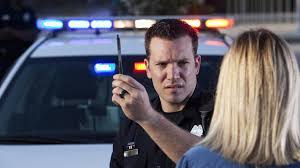Driving Under the Influence (DUI) remains a critical issue in Orange County. Laws that govern DUI cases are stringent, designed to mitigate potential road hazards and maintain public safety. One crucial component in these cases is the Field Sobriety Test (FST). As an evaluative tool, FSTs serve as a vital mechanism for the CHP, Orange County Sheriff’s and Fullerton police officers to ascertain a driver’s impairment due to alcohol or other substances.

The Purpose of Field Sobriety Tests
Field Sobriety Tests are standardized assessments performed by law enforcement officers to determine whether a driver is impaired. These tests achieve several outcomes:
1. Assess Immediate Impairment: By conducting FSTs, officers can quickly gauge if a driver is under the influence. This immediate assessment helps in making real-time decisions on whether to detain the driver and proceed with further investigations.
2. Gather Evidence: The findings from FSTs serve as preliminary evidence that may substantiate the officer’s initial observations. This evidence comprises a critical component in DUI cases, as it bolsters the prosecutorial narrative.
3. Ensure Public Safety: Preventing an impaired driver from continuing their journey is key to protecting other road users. FSTs provide a means for officers to evaluate and remove potential threats from public roads.
Types of Field Sobriety Tests
The National Highway Traffic Safety Administration (NHTSA) endorses three Standardized Field Sobriety Tests (SFSTs) which are commonly implemented:

1. Horizontal Gaze Nystagmus (HGN) Test: This test involves the observation of the involuntary jerking of the eye as it gazes to the side. An officer will typically ask the driver to follow a moving object, such as a pen or flashlight, with their eyes. The presence of distinct nystagmus at certain angles can indicate impairment. A skilled Orange County DUI lawyer will point out that this test can only determine the presence of alcohol, not the amount. It is NOT illegal to drive with alcohol in your system.
2. Walk and Turn Test: This divided attention task requires the driver to walk in a straight line, heel-to-toe, turn on one foot, and return in the same manner. An impaired individual may struggle to maintain balance, follow instructions, or execute the test smoothly.

3. One-Leg Stand Test: In this assessment, the driver is instructed to stand on one leg while counting aloud until told to put their foot down. Difficulty maintaining balance, hopping, or swaying can indicate intoxication.
Legal and Evidentiary Significance
Field Sobriety Tests hold substantial legal weight in DUI cases:
1. Probable Cause: Successful administration and observation of FSTs contribute to establishing probable cause for arrest. This is often the basis for requiring a more definitive chemical test, such as a breathalyzer or blood test.
2. Courtroom Evidence: When DUI cases proceed to court, the results of the FSTs are scrutinized by the defendant’s Orange County DUI attorney. Officers’ testimonies and dashcam footage of the tests serve as compelling evidence for juries and judges, influencing the case’s outcome. Often, A skilled Orange County DUI lawyer can cast doubt on the results of these tests.
3. Procedural Adherence: Strict adherence to protocol during FST administration is vital. This point is often driven home in court by a skilled Fullerton DUI lawyer. Any deviation or error on the part of the officer can result in the test results being deemed inadmissible, potentially weakening the Orange County District Attorney’s case.
Challenges and Criticisms
Despite their importance, Field Sobriety Tests are not without criticisms and challenges:
1. Subjectivity: One major critique focused on by a skilled Orange County DUI attorney of FSTs is their inherent subjectivity. The interpretation of the driver’s performance is left to the officer’s discretion, which can vary based on training, experience, and personal biases.
2. Physical and Medical Conditions: DU lawyers know that Individuals with certain physical or medical conditions may perform poorly on FSTs, despite not being impaired. Conditions like vertigo, arthritis, or even anxiety can adversely affect test outcomes.
3. Environmental Factors: External factors such as weather conditions, uneven pavement, or poor lighting are often highlighted by a skilled Fullerton DUI lawyer because these can impact the driver’s ability to perform the tests accurately, leading to potential false positives for impairment.
Defense Strategies in DUI Cases

Given the potential for inaccuracies, DUI defense attorneys often challenge the reliability and validity of Field Sobriety Tests in DUI cases. Common strategies include:
1. Questioning Test Conditions: DUI defense attorneys scrutinize the conditions under which FSTs were administered. Any flaws in the testing environment (e.g., uneven ground, poor lighting) or deviations from standard protocol can be argued as grounds for dismissing the test results.
2. Highlighting Alternative Explanations: Orange County DUI attorneys may highlight medical, physical, or psychological conditions that could have impaired the defendant’s performance unrelated to alcohol or drug use. Expert testimonies from medical professionals often support these arguments.
3. Challenge Officer Credibility: Your Fullerton DUI lawyer may question the officer’s training, expertise, and conduct during the administration of the FSTs. Demonstrating inconsistencies or lack of adherence to procedure can undermine the reliability of the results.
Enhancing Reliability of Field Sobriety Tests
Efforts to mitigate the flaws associated with FSTs are ongoing, focused on enhancing their reliability and accuracy:
1. Advanced Training: Continuous and comprehensive training for law enforcement officers can minimize subjectivity and improve their ability to conduct and interpret FSTs accurately.
2. Standardization and Technology: Incorporating standardized protocols and utilizing technology such as body cameras can provide objective records of the tests, offering greater transparency and accountability.
3. Supplementary Testing: Relying on a combination of Field Sobriety Tests, chemical tests, and corroborating evidence can strengthen the case against impaired driving. This multi-faceted approach ensures a more robust and defensible process.
Field Sobriety Tests play an essential role in DUI cases, acting as a critical tool for law enforcement in assessing and proving impairment. While challenges and criticisms exist, ongoing improvements in training, protocol adherence, and technology aim to address these issues, ensuring that FSTs remain a reliable instrument in the pursuit of road safety and justice. Understanding their significance and the nuances involved in their application is essential for Orange County DUI attorneys navigating the complexities of DUI regulations.
